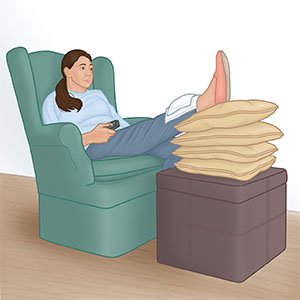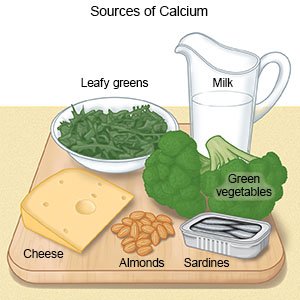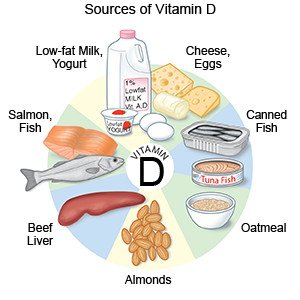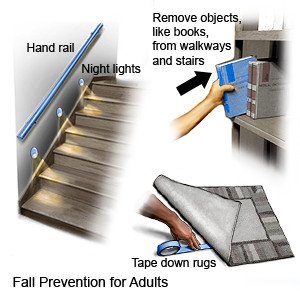Rheumatoid Arthritis
Medically reviewed by Drugs.com. Last updated on Aug 4, 2025.
Rheumatoid arthritis (RA) is a long-term autoimmune disease that causes joint inflammation and damage. RA causes your body's immune system to attack the synovial membrane (lining) in your joints. RA can also affect other organs, such as your eyes, heart, or lungs. RA may also increase your risk for osteoporosis (weakened bones).
DISCHARGE INSTRUCTIONS:
Call your doctor or rheumatologist if:
- You have a fever.
- You have increased joint swelling, pain, or redness.
- Your skin is itchy, swollen, or has a rash.
- Your symptoms are getting worse, even with treatment.
- You have questions or concerns about your condition or care.
Medicines:
You may need any of the following:
- Antirheumatics help slow the progress of RA, and reduce pain, stiffness, and inflammation.
- NSAIDs , such as ibuprofen, help decrease swelling, pain, and fever. NSAIDs can cause stomach bleeding or kidney problems in certain people. If you take blood thinner medicine, always ask your healthcare provider if NSAIDs are safe for you. Always read the medicine label and follow directions.
- Biologic therapy helps your immune system fight the disease. These medicines increase the risk of serious infection and need careful monitoring.
- Steroid medicine helps reduce swelling and pain.
- Take your medicine as directed. Contact your healthcare provider if you think your medicine is not helping or if you have side effects. Tell your provider if you are allergic to any medicine. Keep a list of the medicines, vitamins, and herbs you take. Include the amounts, and when and why you take them. Bring the list or the pill bottles to follow-up visits. Carry your medicine list with you in case of an emergency.
Manage your symptoms:
- Rest when needed. Rest is important if your joints are painful. Limit your activities until your symptoms improve. Gradually start your normal activities when you can do them without pain. Avoid motions and activities that cause strain on your joints, such as heavy exercise and lifting.
- Use ice or heat. Both can help decrease swelling and pain. Use an ice pack, or put crushed ice in a plastic bag. Cover it with a towel and place it on your joint for 15 to 20 minutes every hour or as directed. You can apply heat for 20 minutes every 2 hours. Heat treatment includes hot packs, heat lamps, warm baths, or showers.
- Elevate your joint. Elevation helps reduce swelling and pain. Raise your joint above the level of your heart as often as you can. Prop your painful joint on pillows to keep it above your heart comfortably.

Related medications
Treatment options
The following list of medications are related to or used in the treatment of this condition.
Manage RA:
- Talk to your healthcare providers about your RA medicines. Some medicines may only be needed when you have arthritis pain. You may need to take others every day to prevent arthritis from getting worse. It is important to take the medicines as directed, even if you start to feel better. You can continue to have joint damage and inflammation even if you do not feel it.
- Talk to your providers about family planning. Some RA medicines cannot be used during pregnancy or while you are breastfeeding. Some may affect a male's ability to get a female partner pregnant. If you want to prevent pregnancy, ask about birth control methods that are effective with your RA medicines.
- Eat a variety of healthy foods. Healthy foods include fruits, vegetables, whole-grain breads, low-fat dairy products, beans, lean meats, and fish. Ask if you need to be on a special diet. A diet rich in calcium and vitamin D may decrease your risk of osteoporosis. Foods high in calcium include milk, cheese, broccoli, and tofu. Vitamin D may be found in meat, fish, fortified milk, cereal and bread. Ask if you need calcium or vitamin D supplements.


- Maintain a healthy weight. This may help decrease strain on joints in your back, knees, ankles, and feet. Ask your healthcare provider what a healthy weight is for you. Ask your provider to help you create a weight loss plan, if needed.
- Go to physical or occupational therapy as directed. Physical activity can help relieve pain and stiffness. A physical therapist can teach you exercises to improve flexibility and range of motion. You may also be shown non-weight-bearing exercises that are safe for your joints, such as swimming. An occupational therapist can help you learn to do your daily activities when your joints are stiff or sore.
- Do not smoke. Nicotine and other chemicals in cigarettes and cigars can damage your bones and joints. Ask your provider for information if you currently smoke and need help to quit. E-cigarettes and smokeless tobacco still contain nicotine. Talk to your provider before you use these products.
Support devices to help manage arthritis:
- Orthotic shoes or insoles help support your feet when you walk.
- Crutches, a cane, or a walker may help decrease your risk for falling. They also decrease stress on affected joints.
- Devices to prevent falls include raised toilet seats and bathtub bars to help you get up from sitting. Handrails can be placed in areas where you need balance and support.

- Devices to help with support and rest include splints to wear on your hands and a firm pillow while you sleep. Use a pillow that is firm enough to support your neck and head.
Ask your healthcare provider about vaccines:
You may be at an increased risk for infections due to RA and its treatment. Vaccines may prevent infections from various viruses.
Follow up with your doctor or rheumatologist as directed:
Write down your questions so you remember to ask them during your visits.
© Copyright Merative 2025 Information is for End User's use only and may not be sold, redistributed or otherwise used for commercial purposes.
The above information is an educational aid only. It is not intended as medical advice for individual conditions or treatments. Talk to your doctor, nurse or pharmacist before following any medical regimen to see if it is safe and effective for you.
Learn more about Rheumatoid Arthritis
Treatment options
Care guides
Symptoms and treatments
Medicine.com guides (external)
Further information
Always consult your healthcare provider to ensure the information displayed on this page applies to your personal circumstances.
